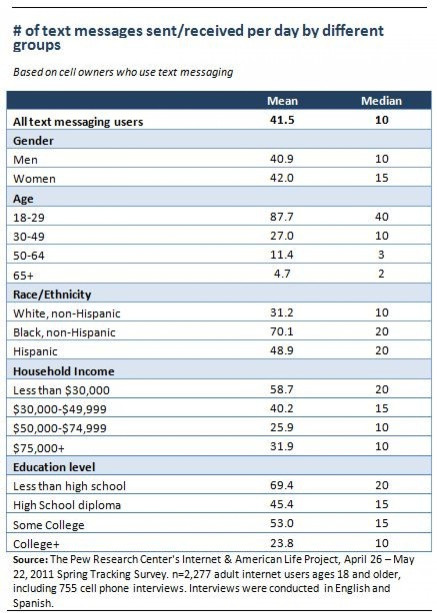A New Yorker's Opinion: Frankly, I'd Rather Talk Than Text
Opinion

I'm from New York, so when I'm on the street, I'm talkin' here, as Dustin Hoffman said in the movie Midnight Cowboy. I mean, as a New Yorker, I like to talk, live, to other people. That's half the fun of living in a crowded city. The sound of multilingual badinage that ricochets like gunshots through the concrete canyons of the city is music to those of us who love the urbanity of discourse.
That's changing, it seems, as a new generation focuses more on texting than talking, and it's changing everything. Not only in the streets, but in the offices, a quiet calm permeates all, as conversations take place via iPhones and Droids and Blackberries and Samsungs and iPads and Nooks, pushing silence into every communication cranny of daily existence.
Being of a certain age, I asked a younger colleague about it. When was the last time you actually used your phone to call someone, he asked me. Like that was so ridiculous.
All the time, I said.
I saw from his look that my edginess-pass had just been cancelled. Texting, he said. That's all I use it for. I feel more comfortable with it
So I asked him about that and he explained that it let him compose his thoughts better. Okay, that makes sense, in a way. It allows you to manage your interactions with others in a more calculated, less spontaneous way. That's not so bad, I thought. But, also, maybe not so good. And, of course, spontaneous talking gets harder the less you do of it, like anything else. And over time, maybe there will just be less live talking in general in the world.
Then this morning, I ran across this: dating in New York, too, has gone online, too. Not just New York, either, though, natch, we are number uno, at least according to Snap Interactive.
The hottest action for mobile dating, which apparently involves communicating through its AreYouInterested.com social dating app is, you guessed it, New York, followed by: Chicago, Dallas, Washington, Houston, Los Angeles, Atlanta, San Francisco, Denver and Minneapolis.
In fact the move from talking to texting is changing everything, especially for the young. A September, 2011 Pew Survey found that young adults use texted far more than other age groups and prefer it to actual talking. The survey found that:
- 18-24-year-olds send or receive an average of 109.5 text messages per day
- 23 percent of 18-24-year-old text messaging users report sending or receiving more than 100 texts per day.
- 12 percent say that they send or receive more than 200 messages on an average day
To put these numbers in comparison, the average of 109.5 texts per day among 18-24 year olds is more than double the comparable figure for 25-34 year olds, according to the report, and twenty-three times the figure for text messaging users who are 65 or older.
What is lost when inflection is replaced by LMAF and LOL, is anyone's guess. Language, and communication is always changing, as any student of linguistics and language drift knows. Language and talking defines a culture-and our species as a whole. And this change to a different form of communication is part of that drift, and it will have unpredictable consequences, as does any new technology, and, especially ones related to language. The written word changed the world of the oral tradition in enormous ways. The printing press changed things even more. This move to silent, mobile speech, too, will impact not only communication, but the underlying worldview embedded in the semantics of this new form of language.
So I guess, we are hearing the future. And the future, for better or worse, is much more silent.
© Copyright IBTimes 2025. All rights reserved.





















